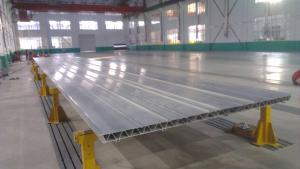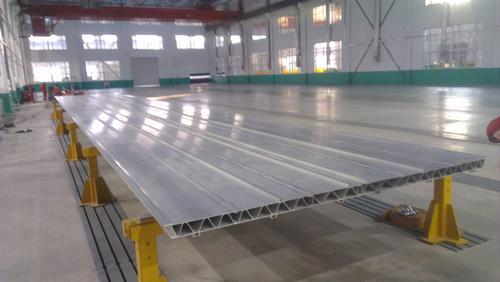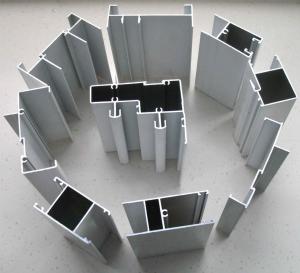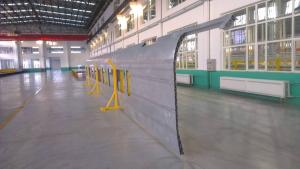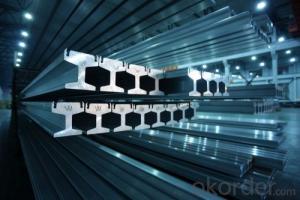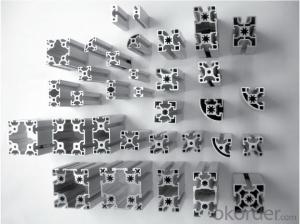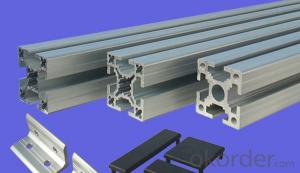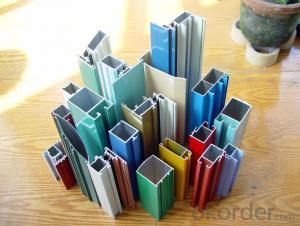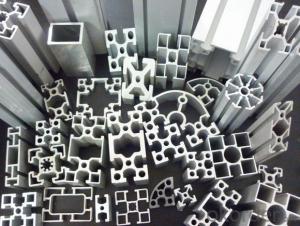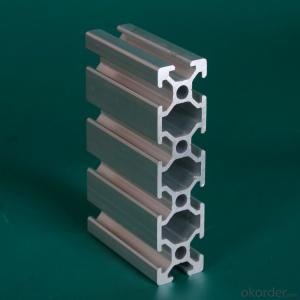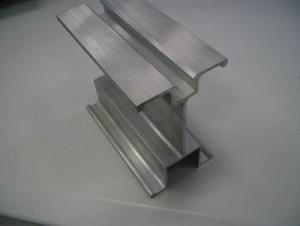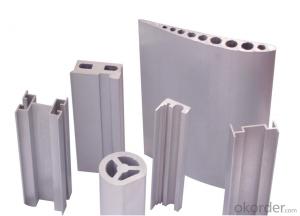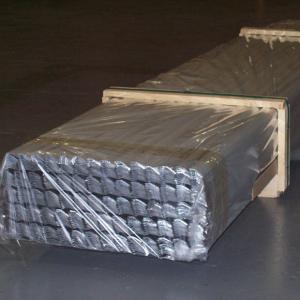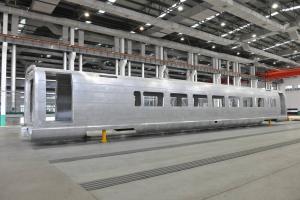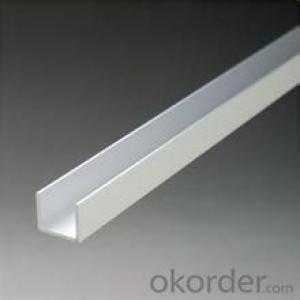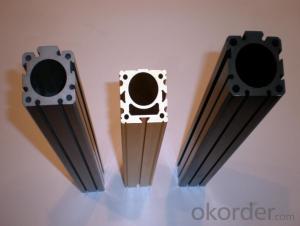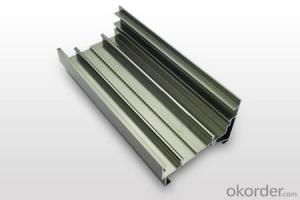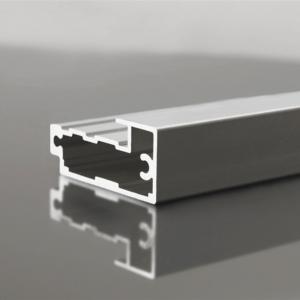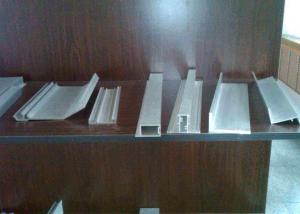Aluminum Profiles Extrusion for Ship Deck
- Loading Port:
- China Main Port
- Payment Terms:
- TT OR LC
- Min Order Qty:
- -
- Supply Capability:
- -
OKorder Service Pledge
OKorder Financial Service
You Might Also Like
Aluminium profile for ship deck
1. Surface: Mill surface treatment
2. Alloy:5083 alloy temper.
3. Size:various dimensions to meet customer’s requirement
4. Advantage:
This ship desk is made with 5083 aluminum profile which has ultra high strength and security, anti-Rust and anti-corrosion. The main advantage with such alloy is as following:
Recycling: this aluminum alloy is easy to be recycled.
Durability and long service life: this aluminum material can be used for 30 years.
Impact resistance: impact resistance of aluminium alloy is higher than steel material.
Quick repairability,: Aluminium can be quickly repaired after colliding
Light weight so to improve ship speed.
Personalization: we can make customized boats according to the customer's requirements and designs.
5. Package:
Standard packaging: 10 pcs of profiles wrapped tightly in one bundle with at least 3 layers of heat-shrinkage at two ends and middles of the bundle, card strips will be used to separate different layers.
6. Life time: Last for 50 years
7. Standard: EN755-9 standard
- Q: What are the fireproofing properties of aluminum profiles?
- Aluminum profiles possess excellent fireproofing properties due to their high melting point, which is around 660 degrees Celsius. This allows them to withstand high temperatures and prevent the spread of fire. Moreover, aluminum does not burn or produce toxic gases when exposed to flames, making it a safe and reliable material for fireproofing applications.
- Q: Are aluminum profiles suitable for lighting fixtures?
- Yes, aluminum profiles are highly suitable for lighting fixtures. Aluminum is a versatile and lightweight material that offers several advantages for lighting applications. Firstly, aluminum profiles have excellent thermal conductivity, which means they effectively dissipate heat generated by the lighting fixtures. This is crucial as excessive heat can reduce the lifespan of the lighting components and affect their performance. Aluminum profiles help to maintain a cooler operating temperature, thereby enhancing the longevity and efficiency of the lighting fixtures. Secondly, aluminum profiles are corrosion-resistant, making them suitable for indoor and outdoor lighting fixtures. This resistance to corrosion ensures that the fixtures can withstand harsh environmental conditions, such as high humidity or exposure to moisture, without deteriorating or losing their functionality. Furthermore, aluminum profiles are easily customizable and can be designed to accommodate various lighting requirements. They can be extruded into different shapes and sizes, allowing for flexibility in the design of lighting fixtures. This versatility enables manufacturers to create sleek and modern lighting solutions that can be seamlessly integrated into different spaces and architectural designs. In addition, aluminum profiles offer aesthetic appeal as they can be powder-coated or anodized in various colors, providing a wide range of options to match different interior or exterior design themes. Lastly, aluminum is a sustainable material that is fully recyclable. Opting for aluminum profiles in lighting fixtures contributes to reducing environmental impact and supports the principles of sustainability. Overall, due to their thermal conductivity, corrosion resistance, versatility, aesthetic appeal, and sustainability, aluminum profiles are highly suitable for lighting fixtures and are widely used in the lighting industry.
- Q: Are aluminum profiles fire-resistant?
- No, aluminum profiles are not inherently fire-resistant. They have a low melting point and can conduct heat, which means they can contribute to the spread of fire. However, aluminum profiles can be enhanced with fire-resistant coatings or used in fire-rated assemblies to improve their fire performance.
- Q: Can aluminum profiles be used in the production of laboratory equipment?
- Yes, aluminum profiles can be used in the production of laboratory equipment. Aluminum is a versatile and widely used material in various industries, including laboratory equipment manufacturing. Aluminum profiles offer several advantages for laboratory equipment production. Firstly, aluminum is lightweight yet strong, making it ideal for constructing equipment that needs to be portable or moved frequently within the laboratory. Its lightweight nature also reduces the strain on laboratory personnel when handling and transporting the equipment. Secondly, aluminum profiles can be easily shaped and molded into various forms and sizes, allowing for the customization of laboratory equipment to meet specific requirements. This flexibility in design enables the production of equipment with complex shapes and structures, ensuring optimal functionality and efficiency. Additionally, aluminum is corrosion-resistant, which is crucial in laboratory settings where exposure to chemicals and liquids is common. This property helps to extend the lifespan of the equipment and ensures it remains in good condition even after prolonged use. Furthermore, aluminum profiles can be anodized or coated to provide additional protection against wear, scratches, and other types of damage. This makes the equipment more durable and easier to clean, maintaining the required hygiene standards in laboratories. Lastly, aluminum is a highly conductive material, making it suitable for applications that require heat transfer or electrical conductivity. This property is advantageous for laboratory equipment such as heating plates, heat sinks, or electrical circuit components. In conclusion, aluminum profiles can indeed be used in the production of laboratory equipment. Their lightweight, malleable, corrosion-resistant, and conductive properties make them a suitable choice for manufacturing various types of laboratory equipment, ensuring durability, functionality, and ease of use.
- Q: This question asks about the various surface treatments or finishes that can be applied to aluminum extrusions, which are shaped profiles made from aluminum.
- <p>Aluminum extrusions can be finished in several ways to enhance their appearance, durability, or functionality. Common finishes include anodizing, which provides a protective oxide layer; powder coating, offering a wide range of colors and textures; painting, which can be done electrostatically or by hand; polishing, resulting in a shiny, smooth surface; brushing, which creates a satin-like finish; and chromate conversion coating, which is a pretreatment for further painting or coating. Other finishes include wood grain transfer, which gives an aluminum surface a wood-like appearance, and various types of protective films or laminates. Each finish serves different purposes, from improving aesthetics to increasing corrosion resistance.</p>
- Q: Who can tell me the latest national standard for aluminum and the latest edition, -2008?
- Standard number: GB 21351-2008Standard Name: energy consumption quota for aluminum alloy building profile products per unitStandard status: currentEnglish: The, norm, of, energy, consumption, per, unit, product, of, wrought, aluminium,, alloy, extruded, architecture, profiles, for,...Date of implementation: 2008-6-1Promulgated by the Ministry of State Administration of quality supervision, inspection and Quarantine of the People's Republic of China, China National Standardization AdministrationBrief introduction: this standard specifies the Aluminum Alloy profile building energy consumption per unit product of the technical requirements, the scope of statistics and calculation method, calculation range and energy saving management measures. And the calculation and assessment of this standard applies to the enterprise energy consumption per unit product of Aluminum Alloy section building, and the consumption of the new project control.
- Q: Can aluminum profiles be used for exhibition stands?
- Yes, aluminum profiles can be used for exhibition stands. Aluminum profiles are lightweight and versatile, making them an ideal choice for exhibition stands. They can be easily assembled and disassembled, allowing for easy transportation and storage. Additionally, aluminum profiles can be customized to fit the specific design and layout requirements of an exhibition stand. They can be used to create frames, partitions, and display panels, providing a sturdy and professional-looking structure. The use of aluminum profiles in exhibition stands also offers the flexibility to add accessories such as lighting fixtures, shelving, and signage, further enhancing the overall visual appeal and functionality of the stand.
- Q: How do aluminum profiles perform in terms of electrical conductivity?
- Aluminum profiles have relatively low electrical conductivity compared to other metals such as copper or silver. This is due to the fact that aluminum has a higher resistivity, meaning it offers more resistance to the flow of electric current. However, aluminum profiles still possess sufficient electrical conductivity for many applications. They can effectively conduct electricity, making them suitable for various electrical and electronic devices. Additionally, aluminum profiles can be specially treated or coated to enhance their conductivity if needed.
- Q: How do aluminum profiles perform in terms of corrosion resistance?
- The outstanding corrosion resistance of aluminum profiles is well-known, attributed to the formation of a protective oxide layer on the surface. This oxide layer effectively shields against corrosion, even in challenging environments, acting as a barrier to halt further oxidation and corrosion. Moreover, the corrosion resistance of aluminum profiles can be further improved through diverse surface treatments like anodizing or powder coating, offering supplementary defense against corrosion. Consequently, aluminum profiles possess remarkable corrosion resistance, rendering them ideal for a vast array of applications in industries such as construction, transportation, and manufacturing.
- Q: How do aluminum profiles perform in terms of creep resistance?
- Aluminum profiles generally exhibit good creep resistance. Creep is the tendency of a material to deform under constant load over time. Aluminum profiles tend to have a low creep rate compared to other materials, making them suitable for applications where long-term structural stability is required. The high strength-to-weight ratio of aluminum profiles also contributes to their creep resistance, as they can withstand heavy loads without significant deformation. However, it is important to note that the creep resistance of aluminum profiles can be influenced by various factors such as alloy composition, heat treatment, and operating conditions. Proper design and engineering considerations should be taken into account to ensure optimal creep performance in specific applications.
Send your message to us
Aluminum Profiles Extrusion for Ship Deck
- Loading Port:
- China Main Port
- Payment Terms:
- TT OR LC
- Min Order Qty:
- -
- Supply Capability:
- -
OKorder Service Pledge
OKorder Financial Service
Similar products
Hot products
Hot Searches
Related keywords
